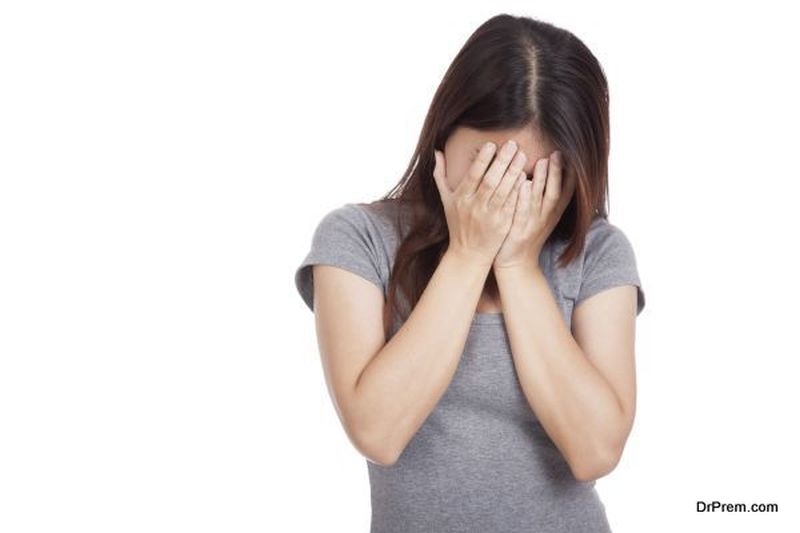Many healing processes are performed in steps or stages. Take, for example, the 12 step program that many addicts undergo. Patients will perform 12 steps of recovery before reaching a better, sober life. The recovery process of grief is very similar. There are generally 5 emotional stages that individuals undergo as they try to cope with grief and the loss of a loved one. But there is hope for life after tragedy. And by understanding the 5 stages of grief, people can begin to heal and see the light at the end of the tunnel.
It’s important to note that these stages are not necessarily experienced in order. Because everyone grieves differently, some people may feel anger before denial, or depression before anger. And some people will feel one emotion and then switch to another before revisiting the first. There is no one size fits all path through the grieving process but at one time or another, everyone will experience these 5 emotions in some form.
Denial
 The first stage of the grieving process is denial. This is especially true if the loss you have suffered is unexpected or especially tragic. Denial is the body’s natural reaction to an event or loss that seems unfathomable. During this stage you may be feeling lost and confused, like the entire world has been turned upside down. Nothing makes sense. And in an effort to make sense of things, you try to convince yourself that nothing bad has actually happened.
The first stage of the grieving process is denial. This is especially true if the loss you have suffered is unexpected or especially tragic. Denial is the body’s natural reaction to an event or loss that seems unfathomable. During this stage you may be feeling lost and confused, like the entire world has been turned upside down. Nothing makes sense. And in an effort to make sense of things, you try to convince yourself that nothing bad has actually happened.
Even if your loved one was elderly and in need of home medical care, you may not be able to grasp the loss. But denial can be a useful tool for some people. It helps your mind and body regulate the amount of stress and grief it can handle at one time. Through denial, you can internalize and work through pieces of your grief slowly and over time. This prevents you from feeling overwhelmed or tailspinning into a deep state of depression. But it’s important to remember that those emotions and events you’ve been denying will eventually come to the surface and need to be addressed.
Anger
Anger is a natural part of the healing process. Don’t be afraid of it. You need to give into your feelings of anger in order to deal with them. Don’t be surprised if you feel irrational anger toward people you wouldn’t expect. You might feel an overwhelming sense of hatred toward the doctors involved in your loss. If friends and family don’t react the way you think they should, you may get frustrated and lash out. The important thing to remember about this stage of the healing process is that feeling anger, even misdirected anger, is better than feeling nothing.
When you begin the grieving process and are in complete denial, you are disconnected from the outside world. You often feel lost, as if no one or nothing can shake you from your state of disbelief. But once you begin feeling anger, this is actually a bridge to more concrete, emotional healing. It’s a sign that you are beginning to reach out and connect with others. But remember, beneath that anger is pain and dealing with that pain is the next stage of grief.
Bargaining

The bargaining stage of grief is about despair. You are desperate to bring back your loved one. You are willing to do or say anything to bring your loved one back. Regardless of your religion or how you feel about God, you may find yourself begging a higher power to undo the tragedy that has been done.
The bargaining stage of grief is also filled with many questions and “What if”s. What if I had done something different? What if we had gone to the doctor sooner? What if I hadn’t taken that route home from work? These questions tie into feelings of regret. You may feel an overwhelming desire to go back in time and make things right. You may even blame yourself for what’s happened and rationalize that your actions, or lack of action, caused the death of your loved one.
Often times, the bargaining stage of grief leaves people feeling caught in the past. They have a hard time letting go of what was and the desire to change it. This constant emotional battle can lead to the next stage of grief, which is depression.
Depression
It’s no surprise that depression is one of the five stages of grief. Losing a loved one is a life-altering event that leaves a lasting mark on your life. Depending on how close you were to the individual, your life may never be the same. The depressed stage of grief often sets in when there is no more denial left and anger has subsided. You’re too tired to bargain and instead, you allow your body to fully accept the feelings of sadness, emptiness, and loneliness. It’s at this point that you realize your loved one is not coming back and the thought of life without them seems unimaginable.
The type of depression experienced following a loss is completely normal and natural. This is a terribly sad time in your life and your mind and body will respond in the appropriate manner. If your depression becomes unhealthy, you may want to seek a medical professional for help coping with these feelings. Unhealthy behaviors include inability to eat or drink, insomnia or excessive fatigue, thoughts of suicide or unwillingness to leave the house. All of these behaviors are normal following a loss but if they continue for too long, you may need help pulling yourself out of your emotional state.
Acceptance
 Appropriately named, this last stage of grief is when you mentally and emotionally come to terms with the fact that your loved one is gone and they won’t be returning. This doesn’t necessarily mean that you are “okay” or whole again. You may never be the person you were before your loss. But during the acceptance stage of grief you have no choice but to accept the reality of what has happened.
Appropriately named, this last stage of grief is when you mentally and emotionally come to terms with the fact that your loved one is gone and they won’t be returning. This doesn’t necessarily mean that you are “okay” or whole again. You may never be the person you were before your loss. But during the acceptance stage of grief you have no choice but to accept the reality of what has happened.
During this stage you will become accustomed to the new norm that is your life now but you also struggle with letting go of the life that once was. You may try to continue living life the way you did prior to the loss of your loved one. But in time, you’ll realize that is no longer your reality. That it’s okay to accept this new norm and let go of what was. It’s important to be kind to yourself and remind yourself that it’s okay to continue living. That your loved one would want you to live a full, happy, purposeful life.
You may feel guilty about moving on but don’t. You need to move on in order to thrive. This doesn’t mean you miss your loved one any less or that life will ever be the same. It just means that you’ve learned to heal and realize that in order to survive, you must pick up the pieces and start moving forward.
Don’t be surprised if your healing process doesn’t look exactly like this. No one can understand the pain you feel but don’t be afraid to let people in. Allow those loved ones that are still here to help you through these stages of grief. If at any time you feel too overwhelmed by what’s happening, seek a professional, medical opinion.
Article Submitted By Community Writer




